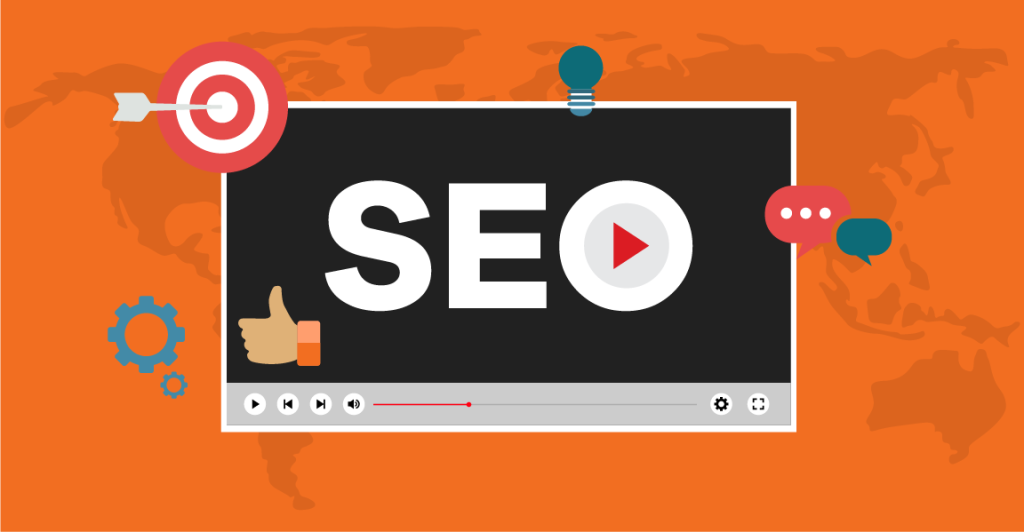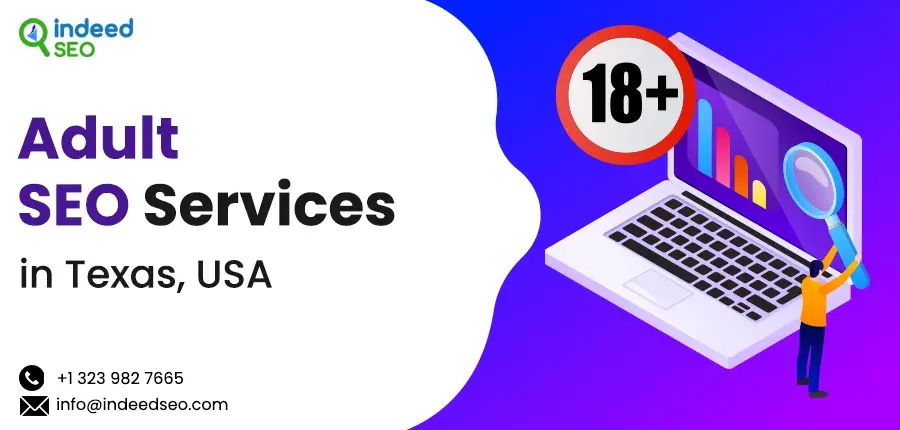Scale your business with white-label marketing by leveraging existing solutions under your brand. This strategy streamlines expansion and enhances service offerings.
White-label marketing is a game-changer for businesses aiming to upscale without the hefty investment in product development. It allows companies to offer additional services or products by rebranding expertly crafted solutions from other providers. This approach not only saves time and resources but also positions businesses to meet market demand swiftly.
By adopting white-label solutions, companies can focus on their core competencies while expanding their portfolio, providing a competitive edge in the market. This strategy is particularly beneficial for small to mid-sized businesses seeking to establish a stronger market presence without diluting their resources.

Credit: www.boostability.com
Introduction To White-label Marketing
Imagine growing your business without increasing overheads. White-label marketing can make this a reality. It allows you to offer more services under your brand. You don’t create these services. Another company does. Your business sells them as its own. This strategy boosts your offerings without extra costs or time spent on development.
The Concept Of White Labeling
White labeling is simple. Your company buys a product or service. It has no branding. You add your logo and sell it. Your clients never know it’s from another company. This is common in various industries. Tech companies, food producers, and retailers use it.
Benefits For Business Growth
- Cost-Effective: Save on development and research.
- Time-Saving: Launch services quickly.
- Brand Expansion: Offer more without new investments.
- Focus on Core: Concentrate on what you do best.
- Customer Satisfaction: Meet more client needs.

Credit: blog.synthflow.ai
Identifying Your Core Offerings
Scaling a business is a big step. White-label marketing can help. First, you need to know what you do best. This means finding your core offerings. Let’s dive into how to do this.
Assessing Business Strengths
Start by looking at what your business does well. Think about services or products that stand out. These are your strengths. List them. This will help you understand where to focus.
- Review customer feedback to see what they love.
- Analyze sales data to identify top sellers.
- Ask your team about what they think you do best.
Focusing On Competitive Advantages
Next, find out what makes you better than others. This is your competitive advantage. It can be anything from pricing to quality. It’s what makes customers choose you.
- Identify what makes your offerings unique.
- Highlight these differences in your marketing.
- Develop products or services that enhance these advantages.
Remember, your core offerings are key to scaling with white-label marketing. Focus on your strengths and what makes you different. This will guide your growth.
Selecting The Right White-label Partners
Identifying the ideal white-label partners is crucial. These partners will represent your brand’s quality and reliability. This selection can make or break your business scaling efforts.
Criteria For Partner Selection
Partner selection requires a strategic approach. Look for these key attributes:
- Reputation: A strong track record is essential.
- Expertise: They must have proven skills in your niche.
- Reliability: Consistent quality and delivery times matter.
- Scalability: They should grow with your demand.
- Communication: Clear, responsive interactions are vital.
- Cost-effectiveness: Their services should be competitively priced.
Building Strategic Alliances
Forming strategic alliances is more than just a partnership. It’s about finding synergy. Align with those who share your vision and business values. This ensures a harmonious growth path.
| Strategic Alliance Factor | Benefit |
|---|---|
| Shared Goals | Unified direction in business growth |
| Complementary Strengths | Enhanced service offerings |
| Mutual Support | Reliable backup during demand spikes |
Choose alliances that bring new strengths to your table. Their expertise should fill gaps in your business. Ensure they can handle increased workloads. This will help you scale efficiently.
Integrating White-label Services
Scaling a business requires smart strategy and efficient tools. White-label marketing is one of those powerful tools. By integrating white-label services, companies can expand their offerings without investing in new product development. This section will explain how businesses can seamlessly integrate white-label services and maintain brand consistency.
Seamless Service Integration
Seamless integration is key to scaling with white-label services. It ensures a smooth workflow transition. Here’s how you can achieve it:
- Choose compatible services: Pick services that match your current offerings.
- Automate processes: Use tools that automate the integration for efficiency.
- Train your team: Ensure they understand the new services well.
- Test before launch: Always test the services to ensure they work flawlessly.
Maintaining Brand Consistency
Keeping your brand image consistent is crucial when using white-label solutions. Follow these steps to maintain your brand’s voice and identity:
- Customize to your brand: Tailor the services to fit your brand style.
- Clear communication: Keep your messaging consistent across all platforms.
- Quality control: Regularly check to ensure the services meet your standards.
- Feedback loop: Collect customer feedback to improve and adapt.
Pricing Strategies For White-label Solutions
Scaling a business requires smart strategies. White-label marketing is a powerful tool. It allows businesses to offer more without extra work. Pricing these services right is key. Let’s explore how to price white-label solutions.
Cost-effective Pricing Models
White-label services need to be affordable. They should also be profitable. Finding the balance is vital. Businesses must consider production costs. They then add a margin for profit. This keeps prices competitive.
Consider tiered pricing. This makes services accessible to different budgets. It can include basic to premium options. Each tier adds more features. This model draws various clients.
Bulk pricing is another model. It offers discounts on large orders. This encourages bigger purchases. It’s good for clients and businesses.
Value Proposition To Clients
White-label solutions must offer clear value. Clients should understand what they gain. This includes quality, convenience, and ROI. A strong value proposition makes services attractive.
- Showcase quality. Use testimonials and case studies. This builds trust.
- Highlight convenience. Stress the ease of integration and support. This saves clients time.
- Emphasize ROI. Demonstrate potential earnings. This shows the solution’s worth.
Transparent pricing is crucial. Clients need to see what they pay for. This fosters trust. It also simplifies decision-making.
Sales And Marketing Tactics
Scaling a business calls for smart sales and marketing tactics. A white-label marketing approach can boost these efforts. Companies can focus on core offerings. White-label solutions do the rest. This leads to growth without extra strain on resources.
Effective Promotion Strategies
Understanding your audience is key. Tailor campaigns to their needs. Use diverse channels for outreach. Digital platforms and traditional media work together. Track results with analytics tools. Adjust strategies for better outcomes.
- Email campaigns nurture leads.
- Social media builds brand presence.
- Content marketing drives engagement.
- SEO improves online visibility.
Combine these for a robust promotion plan. White-label tools can manage and automate these tasks.
Leveraging Client Testimonials
Client testimonials build trust. They show real results. Display them prominently on your website and marketing materials.
| Location | Impact |
|---|---|
| Homepage | First impression |
| Service Pages | Reinforce value |
| Social Media | Peer validation |
Encourage happy clients to share their experiences. Offer incentives for testimonials. Use white-label platforms to collect and showcase these stories.
Client Onboarding And Support
Scaling your business with white-label marketing starts with Client Onboarding and Support. This phase is crucial. It sets the stage for a strong, lasting relationship. Let’s dive into how to make this process smooth and supportive.
Streamlining The Onboarding Process
A smooth onboarding process is key to success. Here’s how to achieve it:
- Create a simple, step-by-step guide for new clients.
- Use online forms and checklists to collect necessary information.
- Automate repetitive tasks to save time and reduce errors.
- Introduce your team and their roles to build trust.
Remember, the goal is to make clients feel welcome and valued.
Providing Excellent Customer Service
Great customer service turns clients into fans. Here’s what works best:
- Respond quickly to questions and concerns.
- Offer multiple channels for support (email, phone, chat).
- Provide clear, helpful answers and solutions.
- Ask for feedback to improve your services.
Excellent service builds trust and loyalty. It keeps clients happy.
Scaling Through Automation And Technology
Business growth demands efficiency and adaptability. Automation and technology provide these qualities. They let businesses scale up without the strain of increased manual tasks. Let’s explore how strategic investments in tech tools can elevate operational efficiency.
Investing In The Right Tools
Choosing the right tools is a game-changer for scaling businesses. The market overflows with software solutions. Yet, not all fit your unique needs.
- CRM systems streamline customer interactions.
- Project management software keeps teams on track.
- Marketing automation platforms deliver consistent client engagement.
Identify gaps in your workflow. Select tools that address these gaps. Ensure these tools integrate well with your existing systems.
Enhancing Operational Efficiency
With the right tools in place, the next step is to boost efficiency. This means doing more with less effort.
- Analyze your data to find improvement areas.
- Automate repetitive tasks to save time.
- Use cloud services for better collaboration.
Technology can transform every aspect of your business. Automated customer service tools can handle inquiries. They leave your team free for complex issues.
Remember, tech should work for you, not against you. Choose wisely to ensure it aligns with your scaling goals.
Monitoring Performance And Gathering Insights
Monitoring Performance and Gathering Insights is key to scaling your business with white-label marketing. It helps you understand what works. You can then do more of what brings success. Let’s dive into how to track and learn from your marketing efforts.
Key Performance Indicators (kpis)
Tracking the right Key Performance Indicators (KPIs) is crucial. KPIs show how well your marketing strategies work. Focus on metrics that matter to your goals. Here are some important KPIs:
- Conversion Rate: Shows the percentage of visitors who take action.
- Customer Acquisition Cost (CAC): Tells how much it costs to gain a new customer.
- Return on Investment (ROI): Measures the profit made from your campaigns.
Use tools like Google Analytics to track these KPIs. This makes monitoring easier.
Adapting To Market Changes
The market always changes. Your business must be ready to adapt. Here’s how:
- Stay informed about your industry. Know the latest trends.
- Listen to customer feedback. They tell you what they need.
- Test new strategies. See what works best now.
Always be ready to change your plan. This keeps your marketing fresh and effective.
By keeping an eye on KPIs and being ready to adapt, your business can grow. Use these insights to make smarter decisions. This is how you scale your business with white-label marketing.
Legal And Ethical Considerations
Scaling your business with white-label marketing can be a smart move. But it’s important to consider legal and ethical aspects. These ensure your business grows on solid ground. Let’s explore the key points you need to watch out for.
Ensuring Compliance
Before diving into white-label marketing, make sure you’re compliant. This means understanding and following all relevant laws and regulations. It’s crucial to protect your brand and avoid costly penalties.
- Know the laws in your industry and region.
- Review contracts with white-label providers carefully.
- Stay updated on legal changes that could affect your business.
Upholding Transparency And Integrity
Transparency and integrity are key to white-label marketing. Customers trust brands that are open about their practices. Keep these values in focus to maintain a loyal customer base.
- Be clear about your use of white-label services.
- Ensure product quality matches your brand’s standards.
- Communicate any issues promptly to customers.
Future Trends In White-label Marketing
The landscape of white-label marketing is ever-evolving. New trends emerge, shaping the future of how businesses scale and succeed. Staying ahead means adapting to these changes and leveraging them for growth. Let’s explore what lies ahead in white-label marketing.
Innovations On The Horizon
As technology advances, so do white-label solutions. Businesses can expect:
- AI-driven analytics to understand customer behavior better.
- Automated content creation tools to produce quality material swiftly.
- Personalization engines that tailor services to individual needs.
- Blockchain for transparent, secure client transactions.
These tools will help brands offer more with less effort.
Preparing For Industry Shifts
Change is constant in digital marketing. Companies must prepare:
| Shift | Preparation Strategy |
|---|---|
| Data privacy regulations | Update compliance policies. |
| Mobile-first indexing | Optimize for mobile devices. |
| Voice search optimization | Incorporate conversational keywords. |
| Social media diversification | Expand into new platforms. |
Adapting to these shifts can place a business at the forefront of its industry.

Credit: www.whitesharkmedia.com
Frequently Asked Questions
Is White Label Business Profitable?
White label businesses can be profitable, offering scalability and brand growth opportunities without the high costs of product development.
How Do I Scale My Marketing Business?
To scale your marketing business, invest in automation tools, hire skilled professionals, expand service offerings, leverage data analytics, and build strategic partnerships.
How To Start A White Label Marketing Business?
Research your niche and define your target market. Secure partnerships with established marketing service providers. Develop your branding and create a white-label platform. Set competitive pricing structures. Market your services to potential clients effectively.
How To Market A White Label Product?
Identify your target audience and tailor your branding to meet their preferences. Leverage digital marketing channels, including social media and email campaigns, to reach potential customers. Build partnerships with influencers or businesses that complement your product. Offer competitive pricing and showcase the product’s unique selling points.
Monitor and adapt your strategies based on customer feedback and analytics.
Conclusion
Embracing white-label marketing offers a strategic advantage for business growth. It allows you to expand offerings and scale efficiently without sacrificing quality. By partnering with skilled providers, you can focus on core competencies and customer satisfaction. Start leveraging this powerful solution to elevate your business today.

